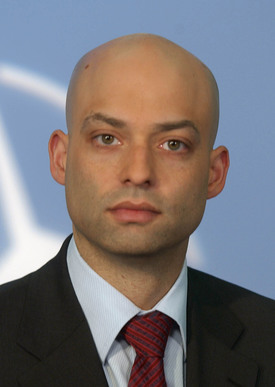James Appathurai: ‘There will be More NATO in Georgia’
“Change may not come overnight, but we have seen what can happen in a generation.” Those were the words of Rose Gottemoeller, NATO Deputy Secretary General (2016 – October 2019), when she spoke with students at Batumi Shota Rustaveli University, earlier this month. The occasion was the visit of the North Atlantic Council (NAC), NATO’s principal political decision-making body, to Georgia. This was the NAC’s fifth visit to Georgia since 2008.
Speaking with the young generation of Georgians, Ms. Gottemoeller stressed that continuing the pace of reform, and realising Georgia’s Euro-Atlantic ambitions, will be a societal and a generational challenge for this country. A process which requires hard work and patience but which, at the same time, offers many opportunities.
Georgia has certainly made good use of those opportunities in the past years. Everyone who has been in the country 10-15 years ago and returns again today can see with their own eyes the transformation that has taken place here, through the hard work of the Georgian people, with dedicated support of its Western allies. It is important that these domestic reforms continue, including to bring Georgia forward on its path to Euro-Atlantic integration. Effective and accountable democratic institutions are a pillar of the country’s security. Therefore, this is important not only for Georgia but also for NATO, including because our partners’ stability and security benefits our own security. One of the best ways for Georgia to protect its territorial integrity and sovereignty is by modernizing, strengthening, the Georgian Defence Forces and that is exactly what NATO is helping to do.
Georgia is indeed a unique partner for NATO and our close cooperation has increased substantially in recent years. Considerable progress has been made, both in democratic reforms and economic development, as well as in more effective defence institutions, and modernised defence forces. Georgia has proven its ability to contribute to our collective Euro-Atlantic security, as one of the largest troop contributors to NATO’s mission in Afghanistan, a steadfast support which we deeply appreciate.
Earlier this year, Georgia’s interoperability with Allied and partnered forces was put to the test, when 350 personnel from 24 NATO allies and partners exercised together just outside Tbilisi at the Joint Training and Evaluation Center (JTEC). The success of this exercise was a clear demonstration of Georgia’s command and control capabilities.
Georgia has achieved a lot, and the bulk of these achievements in the security and defence sector has taken place under the umbrella of the Substantial NATO-Georgia Package (SNGP). The SNGP is the cornerstone of NATO’s support to the reform of Georgia and its preparation for membership. This year, we celebrate 5 years of the SNGP and during the visit of the North Atlantic Council in October, Allies agreed to enhance the package. Under the SNGP umbrella, up to 40 experts from NATO Allies and partners are on the ground in Georgia every day, providing advice on everything from cyber threats to air defence and training your special forces, just to name a few examples. A central element of SNGP is the Joint Training and Evaluation Center (JTEC), where thousands of Georgian and NATO military staff have been trained in the past three years since it was established. JTEC is a success story, a tangible achievement in the dynamic partnership between NATO and Georgia.
The decision by the North Atlantic Council in Batumi this month to refresh the SNGP is a clear demonstration of NATO’s ongoing commitment to Georgia. It is a sign that Allies are united in their support, and a recognition that NATO’s relationship with Georgia continues to make progress.
Cooperation on maritime security is another example of the growing NATO-Georgia partnership. This includes training of Georgia’s Coast Guard and the sharing of situational awareness in the Black Sea. This October, one of NATO’s standing naval maritime immediate reaction forces will be visiting Georgia and conducting a naval exercise with the Coast Guard, for the second time this year. Since the 2014 illegal annexation of Crimea, the situation in the Black Sea has become increasingly tense. NATO, with three Allies who are littoral countries and two of our closest partners, Georgia and Ukraine, also bordering it, all have a shared interest to make sure that the Black Sea remains stable, where navigation takes place freely and according to international law.
So, Georgia’s relations with NATO will continue to increase in depth and breadth, as Georgia continues on its path toward Euro-Atlantic integration.
Georgia already has all the practical and political tools needed to prepare for joining NATO, when the moment is right. We encourage you to continue making full use of all the opportunities at hand for reform, which will help Georgia move closer to the Alliance. There will continue to be more NATO in Georgia, and, we hope, more Georgia in NATO.
